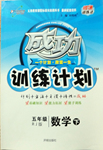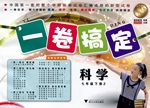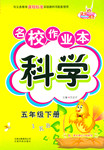题目内容
Children below 5 years old ________only 20% of the total population.
- A.make of
- B.make up of
- C.make into
- D.make up

 成功训练计划系列答案
成功训练计划系列答案 倍速训练法直通中考考点系列答案
倍速训练法直通中考考点系列答案 一卷搞定系列答案
一卷搞定系列答案 名校作业本系列答案
名校作业本系列答案 轻巧夺冠周测月考直通名校系列答案
轻巧夺冠周测月考直通名校系列答案It was pouring outside. We all stood there 26 , some patiently , others annoyed 27 nature messed up (弄糟) their hurried day . I got lost in the sound and sight of the heavens 28 away the dirt and dust of the world.
“Mom, let’s run through the rain,” a girl’s voice 29 me.
“No, honey. We’ll wait until it 30 down a bit,” Mom replied.
The young girl waited about another minute and 31 : “Mom, let’s run through the rain.”
“We’ll get wet if we do,” Mom said.
“No, we won’t, Mom. That’s not what you said this morning,” the young girl said as she 32 her Mom’s arm.
“This morning? 33 did I say we could run through the rain and not get wet?”
“Don’t you remember? When you were talking to Daddy about his cancer, you said,” If God can get us through this, he can get us through 34 .”
The entire crowd turned 35 . Mom paused and thought for a moment about 36 she would say. Now some would laugh it off and scold her for being 37 . But then we heard, “Honey, you are 38 . Let’s run through the rain. If we get wet, maybe we just need washing,” Mom said. Then 39 they ran.
We all stood 40 , smiling and laughing as they ran past the cars. Yes, they got wet. But they were 41 by a few who screamed and laughed like children all the 42 to their cars. Circumstances (境况) or people can take away your material possessions, and they can even take away your 43 . But no one can ever take away your precious 44 . So, don’t forget to make time and take the 45 to make memories every day! I hope you still take the time to run through the rain.
|
1. |
|
|
2. |
|
|
3. |
|
|
4. |
|
|
5. |
|
|
6. |
|
|
7. |
|
|
8. |
|
|
9. |
|
|
10. |
|
|
11. |
|
|
12. |
|
|
13. |
|
|
14. |
|
|
15. |
|
|
16. |
|
|
17. |
|
|
18. |
|
|
19. |
|
|
20. |
|
The 92-year-old, thin, calm and proud lady, who is fully dressed each morning by eight o’clock, even though she is nearly blind, moved to a nursing home today.
Her husband of 70 years recently passed away, making the move necessary. After many hours of waiting patiently in the hall of the nursing home, she smiled sweetly when told her room was ready.
As she walked slowly to the elevator, I provided a true description of her tiny room, including the old sheets that had been hung on her window. “I love it,” she said with the happiness of an eight-year-old girl having just been presented with a new puppy.
“Mrs. Jones, you haven’t seen the room…just wait.”
“That doesn’t matter,” she replied. “Happiness is something you decide ahead of time. Whether I like my room or not doesn’t depend on how the furniture is arranged. It’s how I arranged my mind. I have already decided to love it. It’s a decision I make every morning when I wake up. Each day is a gift, and as long as my eyes open I’ll focus on the new day and all the happy memories I’ve stored away.” She went on to explain, “Old age is like a bank account. You take what you’ve put in. So, my advice to you would be to put in a lot of happiness in the bank account of memories. Thank you for your part in filling my memory bank.” And with a smile, she said, “All my memories are happy ones.”
Mrs. Jones was always happy in the nursing home and she died at the age of 108.
1.We can infer from the passage that the author ________.
|
A.is one of Mrs. Jones’ children |
|
B.is a relative of Mrs. Jones |
|
C.works in the nursing home |
|
D.is the owner of the nursing home |
2.The room in which the old lady will live ________.
|
A.is very comfortable |
|
B.is fairly big |
|
C.isn’t well equipped |
|
D.is equipped with new furniture |
3.Mrs. Jones was very happy when told about her room because she ________.
|
A.couldn’t see what her room was like |
|
B.thought the nursing home was her home |
|
C.would have to live in the nursing home |
|
D.had already made up her mind to be happy |
4.Which of the following words can best describe Mrs. Jones?
|
A.Proud. |
B.Pleasant. |
C.Determined |
D.Honest |
You can improve your child’s hearing memory considerably(在很大程度上). Once his hearing memory has been greatly improved, he'll be able to use and remember what he listens to in class. The success of these suggestions depends upon your ability to use your child’s natural desire to get involved in games he finds simple and fun.
A good way to begin is to read aloud a sentence from a book suitable for your child's reading age. Then ask your youngster to repeat the sentence back to you correctly. Next, reread the sentence, leaving out a particular word. See if your child can identify the word you left out. At the beginning use only simple sentences. Gradually, increase the length of the sentences. Make sure you don’t rush things along too quickly, or your child may become discouraged and tired of the game.
Take your child shopping with you often. He’s to remember a list of items you want to buy in the supermarket. First, ask him to remember only a few things. Then, as he shows increased ability to remember, make the list longer and longer. Praise him often and warmly when he shows increased ability to remember things. He'll become proud of his ‘good’ memory and will happily play the game.
Encourage your child to learn easy and short poems. As his ability to do this becomes stronger, encourage him to remember longer poems. Do the same with songs.
1.The suggestions will be successful if____.
|
A.you find simple and funny games for your child |
|
B.you can stimulate(激发)your child’s interest in the activity |
|
C.you force your child to get involved in more practice |
|
D.you improve your own hearing memory first |
2.The purpose of asking your child to repeat what you say is __.
|
A.to practice his pronunciation |
|
B.to develop his reading skills |
|
C.to help him remember what he hears |
|
D.to play a simple game he may find fun |
3.The third paragraph mainly talks about ___.
|
A.another way to improve your child’s hearing memory |
|
B.how you should take you child shopping with you |
|
C.how to remember the items you want to buy |
|
D.the way you help your child do shopping |
4.The last sentence ‘Do the same with songs’ means you should encourage your child to learn and remember ___.
|
A.songs in the same way as he does with poems. |
|
B.poems in the same way as he does with songs |
|
C.the poems and songs which are similar in meaning |
|
D.those songs that have the same meaning as poems |
5.Who are the supposed readers of this passage?
|
A.Children. |
B.Parents. |
C.Teachers. |
D.Psychologists. |